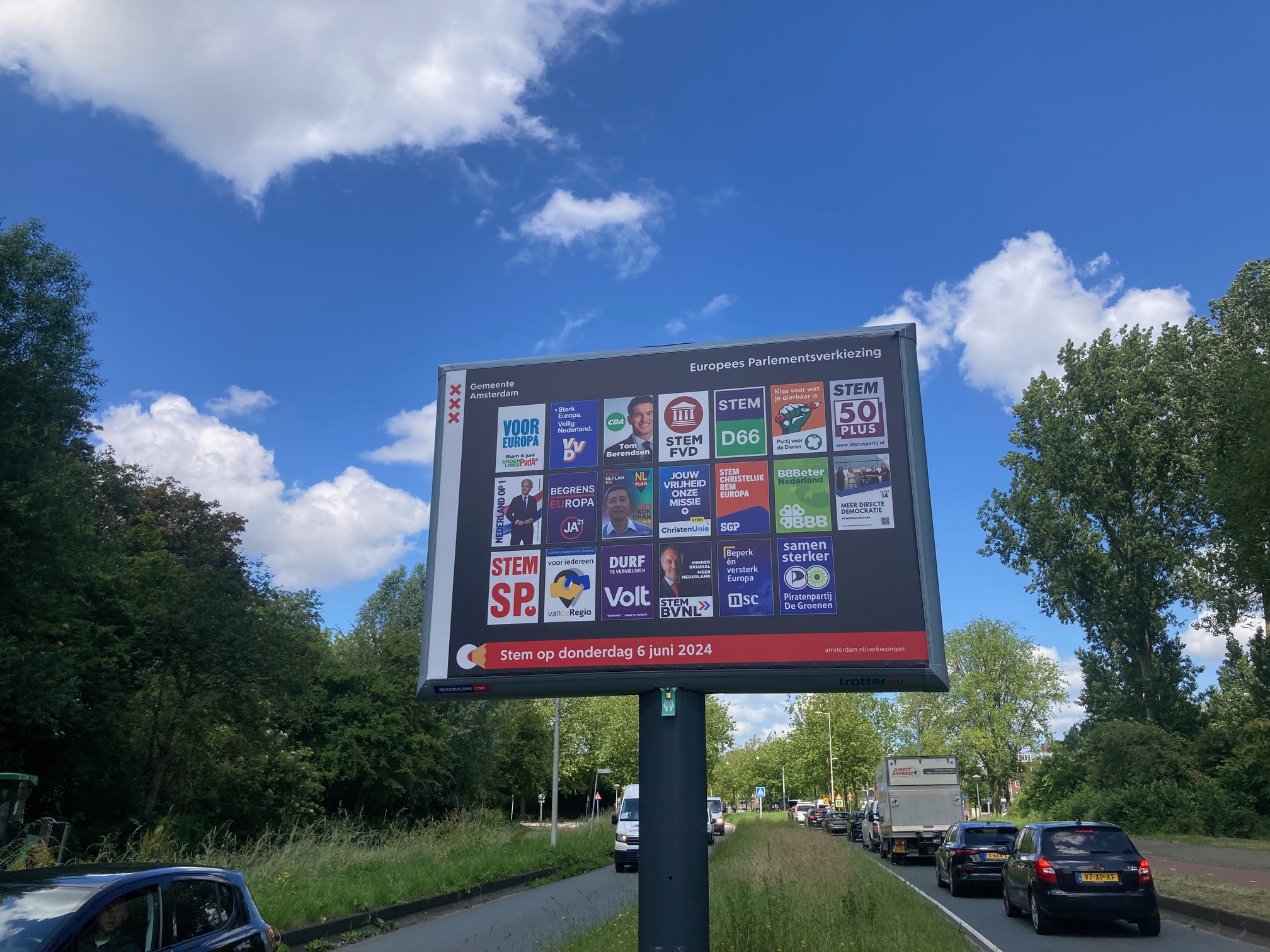GroenLinks-PvdA top Dutch EU vote, far-right PVV wins six seats

As the political make-up of the next European parliament took shape on Sunday night, GroenLinks-PvdA alliance was confirmed as the biggest Dutch contingent with the far-right PVV polling in second place, but with one fewer seat than predicted in Thursday’s exit poll.
The official Dutch results were announced on Sunday evening, after the last of the polling stations closed in Italy at 11 pm.
In the Netherlands, the left-wing alliance has taken eight of the 31 Dutch parliamentary seats, while the PVV won six. Geert Wilders’ party won no seats in 2019, although the Eurosceptic Forum voor Democratie (FVD), which has now been be wiped out, took four.
Despite the rise in support for the far right, about two-thirds of the Dutch voted for a party that is positive about European cooperation. D66 added one seat while pan European party Volt won two seats at an EU level.
Across Europe as a whole, the Christian Democrats (EPP) are set to remain the biggest group, with Monday morning prognoses giving them 184 of the 720 seats in the European parliament, a rise of eight, and the social democrats (S&D) in second place on an unchanged 139. The Liberals (Renew) and Greens both lost heavily, on 80 and 52 seats respectively.
Check out the Guardian’s running count
The far-right I&D group, which includes the PVV and Marine Le Pen’s RN, are forecast to gain nine seats, taking them to 58. The surge in support for Le Pen, whose party is forecast to win around one-third of the vote, prompted also Emmanuel Macron to call new elections. In Belgium, however, the far-right Vlaams Belang made gains but failed to make their expected breakthrough.
The other right-wing conservative grouping, ECR which includes Fratelli d’Italia and Poland’s PiS, is predicted to gain just four seats, at 73. But these figures do not include Germany’s AfD, which won around 16% of the vote, nor far-right parties in Hungary and Slovakia which are all non-aligned. In total, 98 MEPs are without a grouping ahead of the rejig later this week.
Explainer: How the European parliament works
In the Netherlands, the results for Pieter Omtzigt’s NSC are particularly poor. The party won almost 13% of the vote in November but has now plunged to 3.8%, giving it just one seat in the European parliament. According to research by Ipsos I&O, 59% of people who backed the party in the national election did not bother to vote at all last week.
Support for both the PVV and the VVD is down on November, with the VVD losing one of its five seats, an event which party leader Dilan Yesilgöz nevertheless described as a “fine result”. The pro-countryside BBB, however, managed to increase their share of the vote marginally on last year and will debut in Brussels with two MPs.
Comparisons with the 2019 results are difficult because the Dutch delegation to the EU parliament has expanded from 26 to 31 since then.
The Dutch results
GroenLinks-PvdA 8 (3+6)
PVV 6 ( 0 + 1 following Brexit)
VVD 4 (4 + 1 following Brexit)
CDA 3 (4)
D66 3 (2)
BBB 2 (0)
Volt 2 (0)
NSC 1 (0)
SGP 1 (1)
PvdD 1 (1)
The finalised results confirm that ChristenUnie and 50Plus are out of Europe alongside the FvD.
Turnout in the Dutch elections for the European parliament was almost 47%, five percentage points up on 2019 and the highest figure since 1989. Nevertheless, it is still below the EU average of 51% which itself is in line with the 2019 turnout.
All three candidates interviewed by Dutch News ahead of the election will be taking a seat in Brussels. Check out their thoughts:
- Bas Eickhout, number one on the GroenLinks-PvdA list: “A stagnant Europe is an advantage for Putin and Trump”
- Raquel García Hermida-van der Walle, number two on the D66 list: “Spanish by birth, Dutch by choice, and European by conviction”
- Jessika van Leeuwen, number two on the BBB list: BBB wants to have a strong lobby in Brussels
Thank you for donating to DutchNews.nl.
We could not provide the Dutch News service, and keep it free of charge, without the generous support of our readers. Your donations allow us to report on issues you tell us matter, and provide you with a summary of the most important Dutch news each day.
Make a donation